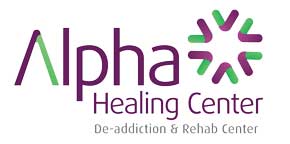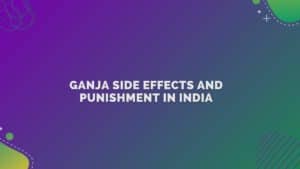Prescription medications are designed to reduce the users’ pain, treat their illnesses, and improve their quality of life. However, these drugs can change the tide and cause addiction if incorrectly used. Novel studies show an estimated 1.3 million people are addicted to prescription drugs in India alone. This number is expected to rise in the coming years as many addicts do not seek help. Usually, breaking free from prescription medication addiction can be an uphill battle, but with the right approach and support, you can regain control of your life. This comprehensive blog outlines key steps to overcome prescription medication addiction and open doors for a healthier future.
Understanding Prescription Medication Addiction
Unfortunately, prescription medication addiction can sneak up on anyone and cause devastating consequences if left unaddressed. The problem usually begins slowly with a noble prescription for easing pain or treating some illness. However, after usage over time, the body tolerates the drug, requiring higher doses to achieve the intended effect. The user then develops increased reliance on the drug, which can quickly turn into an addiction. When it gets here, the individual craves the medication even when it’s no longer necessary.
Knowing how prescription medication addiction manifests itself is critical for early medical intervention. Some common signs include increased tolerance, withdrawal symptoms, and an abnormal medication obsession. It helps to acknowledge the problem and seek immediate assistance to break free from the grip and regain control of your life.
Seeking Professional Help
While recovering from prescription medication addiction is arduous, there’s help outside. For example, addiction treatment centers like Alpha Healing Center offer specialized assistance tailored to the unique needs of prescription drug addicts.
The facility brings together trained medical professionals and therapists who understand how to create personalized treatment plans for each patient. The plans include detoxification (for safely managing withdrawal symptoms), psychological therapy, and holistic approaches to healing the mind, body, and soul. Seeking professional assistance offers the necessary foundation for safe recovery and expert assessment for improved well-being in the long term.
Detoxification: Breaking Physical Dependence
Detoxification is usually the first critical step towards bidding farewell to addiction to prescription medications. It is the gradual tapering off of the drug under professional medical supervision. This is the step where your body rids itself of the harmful substances accumulated during drug use. During detox, several withdrawal symptoms may arise. The symptoms may range from mild discomfort to severe body reactions.
It is important to note that detoxification in a medically supervised environment ensures that patients receive full-fledged care and support for effectively managing their withdrawal symptoms. This stage lays the foundation for subsequent therapies and treatments by helping the addict’s body stabilize physically after withdrawal.
Pursuing Psychological Therapy
Addiction to prescription medication comes with underlying psychological triggers that must be dealt with to guarantee the patient’s long-term recovery. Individual and group therapy sessions are very critical to prescription drug addiction treatment. The therapies provide a safe and supportive atmosphere for patients to discover the primary reasons for their addiction. They also help addicts acquire healthy ways to deal with the underlying challenge.
Patients can understand the emotional and psychological factors causing their prescription drug dependence through therapy. They can cultivate healthier adaptive mechanisms and emotional strength with such critical knowledge. Consequently, the addicts find it easier to avoid relapse and resist the drug even after leaving the treatment facility or center.
Taking a Comprehensive Approach: Healing Mind, Body, and Soul
A comprehensive approach to prescription drug addiction recovery is essential for sustainable change. At Alpha Healing Center, we embrace holistic therapies that address not only the physical aspects of addiction but also the emotional and spiritual sides. Yoga, meditation, art therapy, and physical exercise are examples of activities that enhance the addict’s general health and wellness. Some advantages include boosting mental sharpness, improving physical fitness, and alleviating pressure. By nurturing the mind, body, and soul, the approaches can help addicts realize healthier ways of coping with addiction challenges and embrace a balanced, drug-free lifestyle
Building a Supportive Network
Addiction not only influences the addict but also impacts family members and loved ones. Therefore, engaging family and friends in the recovery process can significantly influence achieving success in rehabilitation. Family therapy provides an opportunity for exchanging ideas, empathy, and healing.
During therapy, family members and friends can gain knowledge about addiction, its effects, and how they can support the underlying addict on his or her journey to recovery. Some of the essential activities that may be pursued during this therapy include restoring broken relationships, nurturing a supportive environment, and rebuilding trust among family members and friends to lay a strong foundation for long-term sobriety.
Preventing Relapse
The commitment to recovery is an ongoing process that requires unrelenting effort. Therefore, relapse prevention strategies should be embraced to help addicts manage a healthier, drug-free life after treatment. At AHC, we offer comprehensive and personalized aftercare support that includes working with support groups and offering peerless counseling to help addicts stay on the right path to recovery.
Some of the most important elements of this recovery stage include understanding relapse triggers, developing coping mechanisms for them, and creating a sustainable relapse prevention plan. Coupled with ongoing support and the knowledge gained during treatment, the addicts can overcome resilience and determination challenges to alleviate the risk of relapse.
Welcoming a Drug-Free Future
Breaking free from the chains of prescription medication addiction creates a fulfilling life for the victim. Therefore, welcoming the new addiction-free future motivates recovered victims to pursue their passions, mend their shattered relationships, and achieve more success using their revitalized energy coupled with determination.
Recovered addicts can make good use of the insights they gained from the lessons learned while undergoing addiction treatment to pursue a new life with more confidence and optimism. AHC (Alpha Healing Center) has a comprehensive approach that equips individuals with every tool and knowledge they need to embrace a drug-free future and flourish in every aspect of the new life after addiction.
Conclusion
To sum up, it is important to understand that while breaking prescription medication addiction is a challenging undertaking, addicts can still achieve success with the right support and consistency in their determination to break free. some of the best ideas that can help you break this addiction include understanding its signs, seeking professional assistance, adopting a healthy lifestyle after recovery, et cetera. In India, where prescription medication addiction is commonplace, it helps to raise awareness and distribute essential resources to those in need. One more thing; taking control of your life and overcoming prescription medication addiction can lead to a brighter future.







